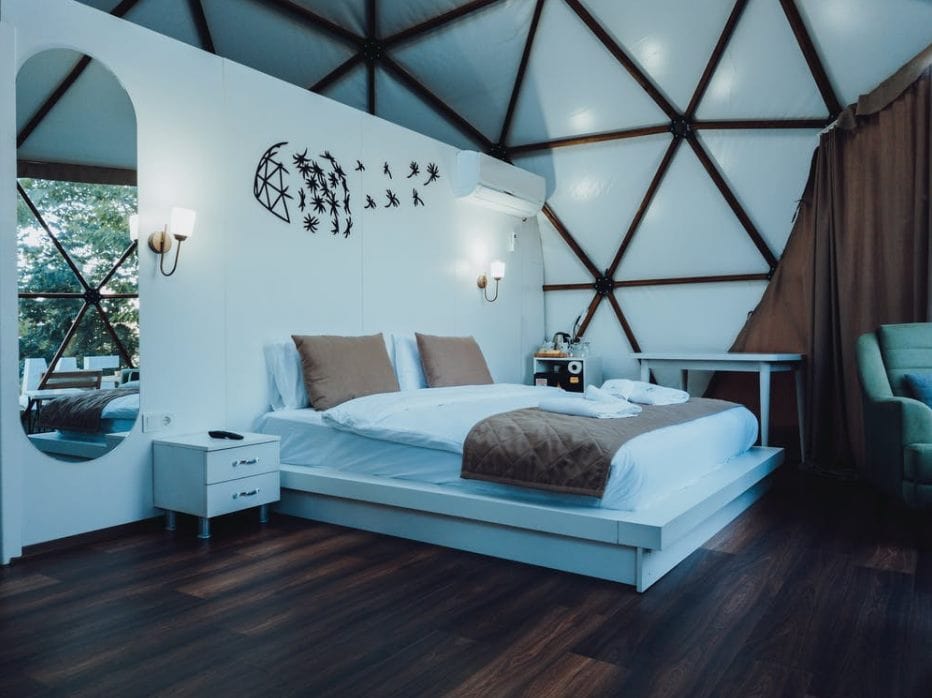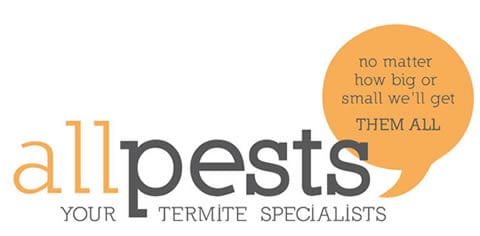When managing a hotel, ensuring a pest-free environment is crucial for the well-being of guests and the overall reputation of the establishment.
Whether you’re trying to prevent infestations or manage an existing one, effective pest control is a top priority.
This guide provides actionable tips on hotel pest control to keep your premises safe and clean for your guests.
Let’s get straight to the point.
Effective pest control is crucial for maintaining a hotel’s reputation, ensuring guest safety, and preventing infestations.
Key strategies include regular inspections, sealing entry points, maintaining cleanliness, and properly managing food and waste.
Staff should be trained to recognise early signs of pests like bed bugs, cockroaches, and rodents. Implementing an Integrated Pest Management (IPM) plan helps reduce pesticide use and is cost-effective.
For severe issues, professional pest control services are recommended. Proactive measures help hotels remain pest-free, ensuring a safe and comfortable environment for guests.

Why Is Pest Control Important in Hotels?
Protecting Your Reputation
In the hospitality industry, reputation is everything. One pest sighting can lead to negative reviews and, worse, an outbreak on social media, which could tarnish your brand.
Prevention is key to maintaining a pristine reputation and ensuring your guests enjoy their stay.
Ensuring Guest Safety and Comfort
Guests expect a safe, comfortable environment free from unwanted pests like bed bugs, cockroaches, and rodents.
These pests pose health risks and cause discomfort, impacting the guest experience and possibly leading to lawsuits in severe cases.
How to Implement Effective Pest Control in Hotels
Regular Inspections and Monitoring
Routine inspections are critical to identifying potential pest issues before they become significant problems.
Schedule regular checks of high-risk areas such as kitchens, restaurants, and guest rooms.
Work with a professional pest control company to perform detailed inspections and address issues immediately.
What to Look For During Inspections
- Signs of bed bugs, such as blood stains on bedding or furniture.
- Cockroach droppings in kitchens or storage areas.
- Signs of rodent activity, like gnaw marks or droppings.
- Flies or other pests around food preparation areas.
Sealing Entry Points
Pests enter hotels through various entry points, including doors, windows, and cracks in the building. To prevent their entry:
- Seal all cracks and openings around doors and windows.
- Install air curtains or automatic doors to keep flying pests out.
- Use weatherstripping on doors and windows to ensure a tight seal.
Maintaining Cleanliness
Cleanliness is one of the most effective ways to prevent pest infestations in hotels. Pests are attracted to food sources and hiding spots.
Keeping the hotel clean, especially in areas like the kitchen and trash storage, is essential.
Focus on Food and Waste Management
- Ensure that food storage areas are clean and that food is properly sealed.
- Regularly clean kitchen areas, focusing on spaces where food particles may accumulate.
- Dispose of trash frequently and make sure bins have tightly fitting lids to prevent access by pests like flies and rodents.
How to Train Hotel Staff for Pest Control
Educate Staff on Pest Awareness
Training hotel staff is crucial in preventing pest infestations. Staff members should be able to recognise early signs of pest activity, such as droppings, bites, or nests.
Areas to Focus on During Training
- Housekeeping staff should check beds and furniture for signs of bed bugs during room cleaning.
- Kitchen staff should look out for cockroaches and flies while preparing food.
- Ensure staff report any pest sightings immediately so action can be taken quickly.
Develop an Integrated Pest Management (IPM) Plan
An Integrated Pest Management (IPM) plan is a proactive and sustainable approach to pest control.
It combines preventive measures, routine inspections, and environmentally friendly pest control methods to minimise the risk of infestations.
Benefits of IPM
- Reduces reliance on pesticides.
- Ensures long-term pest control with continuous monitoring.
- It is cost-effective to address pest problems before they become severe.
Dealing with Common Hotel Pests
Bed Bugs
Bed bugs are among the most notorious pests in hotels, given their ability to hide in furniture and bedding. They are often brought into hotels by guests and can spread rapidly.
How to Prevent Bed Bugs
- Use bed bug covers on mattresses and pillows.
- Conduct routine checks of beds, furniture, and carpet edges.
- Treat affected rooms immediately and isolate them to prevent the spread.
Cockroaches
Cockroaches thrive in warm, dark environments and are commonly found in hotel kitchens, restaurants, and bathrooms.
Preventing Cockroaches
- Keep food preparation areas clean and free of food debris.
- Seal cracks and gaps in walls and floors where cockroaches may hide.
- Regularly remove garbage and use cockroach baits or traps in high-risk areas.
Rodents
Mice and rats are drawn to hotels by the abundance of food and waste. They can enter through small openings in walls, doors, or plumbing.
Preventing Rodent Infestations
- Ensure all entry points are sealed, including doors and pipes.
- Keep food storage and garbage areas clean and secure.
- Use traps and work with professional pest controllers for ongoing rodent management.
Flies
Flies are attracted to hotels by food and waste, particularly in kitchen and dining areas.
Keeping Flies Out
- Install fly screens on doors and windows.
- Clean kitchen drains regularly to prevent fly breeding.
- Use fly traps or zappers in areas prone to infestations.
Ants
Ants are often drawn to sugary foods and are a common nuisance in hotel kitchens and dining areas.
Ant Prevention Tips
- Keep food tightly sealed and clean up spills immediately.
- Inspect and seal any cracks or entry points around windows and doors.
- Place ant baits in high-traffic areas to control their population.

Cost-Effective Pest Control for Hotels
How to Cut Pest Control Costs
Preventing pest infestations is more cost-effective than dealing with a full-blown problem. Here are some ways to save on hotel pest control costs:
- Implement an IPM plan to reduce the need for pesticides and emergency treatments.
- Schedule routine inspections to catch problems early.
- Train staff to recognise pests so issues can be addressed before they escalate.
Professional Pest Control Services
If your hotel faces a significant pest issue, it’s crucial to hire a professional pest control service. They will have the knowledge, equipment, and techniques necessary to handle infestations efficiently.
Hotel Pest Control in Melbourne
For hotels in Melbourne or across Australia, there are numerous pest control services available to assist with both preventative and reactive measures.
From All Pests, who offer services such as bed bug removal and rodent control, to expert advice on Integrated Pest Management, professional help ensures that hotels stay pest-free all year round.
Conclusion
Hotel pest control is essential for guest satisfaction, safety, and maintaining a positive reputation.
By taking proactive measures such as routine inspections, sealing entry points, and maintaining a clean environment, hotels can prevent infestations before they occur.
Additionally, training staff and working with professional pest controllers ensure that hotels remain pest-free.
Implementing these strategies will provide peace of mind for both hotel managers and their guests.
Frequently Asked Questions
When Staying In A Hotel, What Kinds Of Pests Should I Be On The Lookout For?
A variety of common pests can be found in hotels, including mice, rats, cockroaches, flies, and bedbugs. Hotels have a higher risk of infestation due to food availability, the high turnover of guests, and the lack of adequate pest control measures.
What Are Three Approaches To Eliminating Pests?
Hygiene, biological, chemical, physical, fumigation, fogging, and heat treatment are some of the many options available for eradicating unwanted pests.
What Are The Reasons Why A Thorough Pest Management Plan Is Crucial For Any Hotel?
Pest control is an essential service for hotels. Any business that doesn’t take reasonable measures to eliminate pests runs the risk of being shut down, fined, and even prosecuted.
What Methods Do Hotels Use To Get Rid Of Cockroaches?
Following proper cleaning procedures in kitchens and other areas where food is stored and prepared is essential. Keep food in containers that insects cannot open.
Keep the draining system in good working order. Put in place procedures for waste removal, such as transporting trash to appropriate containers within a clean, secure facility.
How Can Pests Be Kept Out Of Restaurants And Other Food Service Establishments?
Any edibles should be stored in airtight containers off the floor to deter pests. Fill in any cracks or openings that rodents could use to enter the building with a complex material to chew through.
To prevent problems from entering your home, make sure to seal any cracks under doors and instal screens on any windows or vents that will be left open.

